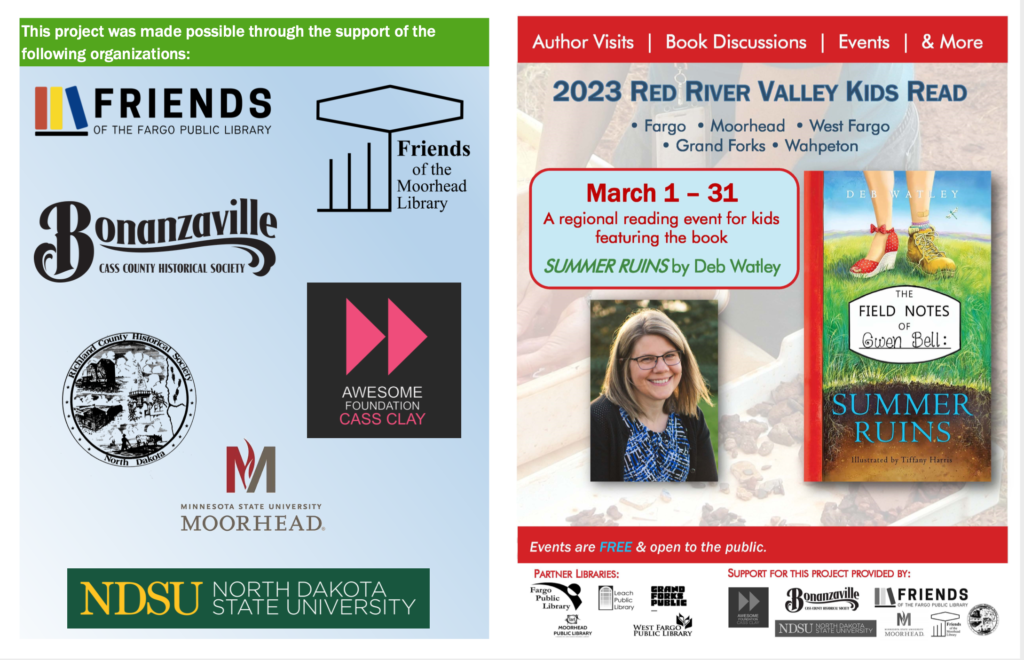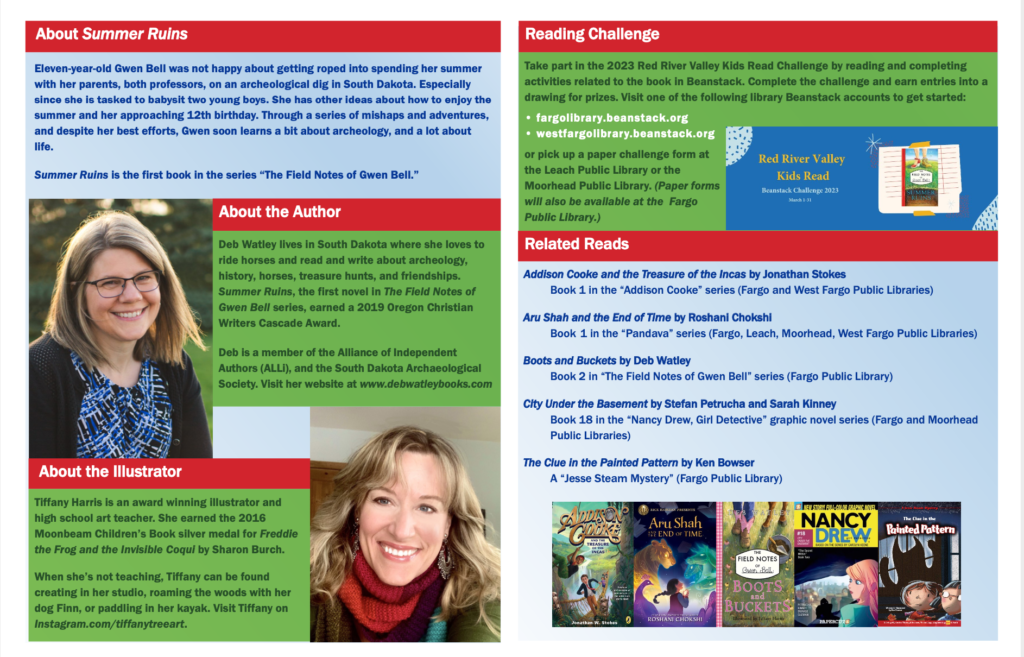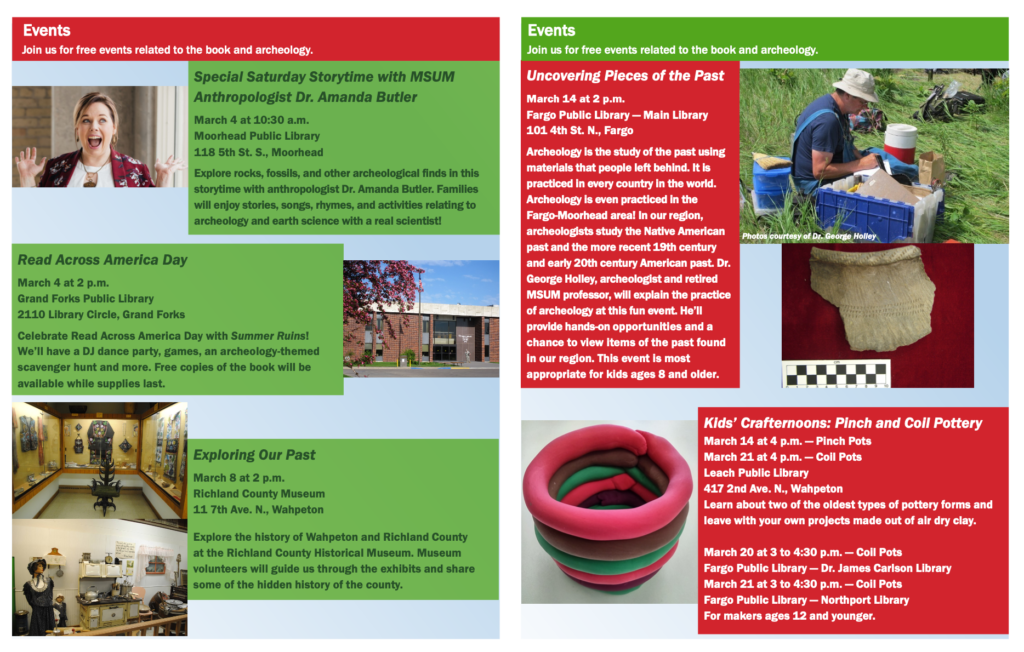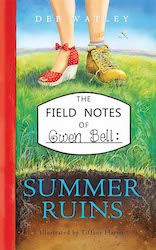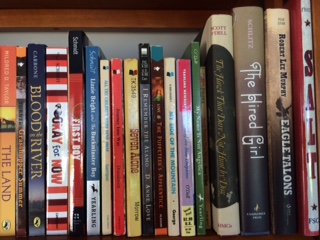Welcome to my new blog! Some of you know that I blogged for several years at www.debwatley.com. But as I’ve started my own company and next week will release my own book, Summer Ruins, I am making a fresh start with a new website/blog.
I will continue to blog about many of the same things: history, archeology, memory, and stories, especially stories for kids. I’ll expand that by also writing about imagination and play.
I’ll write a lot about historical fiction. I love to read it. And although Summer Ruins is contemporary fiction, I also love to write historical fiction.
What exactly is historical fiction?
Can we classify The Island of the Blue Dolphins, The Little House series, and Pride and Prejudice as examples of historical fiction? After all, these stories are set in the past.
Yes, I would classify all three of those examples as historical fiction, especially for child readers, because to an eight-year-old, anything beyond five years ago is ancient history.
My definition of historical fiction: A genre comprised of all stories set in the past.
Splitting up fiction into genres is a function of marketing. It helps match the books to the readers’ interests. It gives the readers some idea of what to expect in a novel.
However, I’d like to split this huge genre into three sub-genres: past contemporary, personal historical fiction, and researched historical fiction.
Past Contemporary: Any story that an author wrote that is set in his or her time period. Often in past contemporary novels, authors assume readers are familiar with current events and culture, so they don’t explain things their contemporary readers already know and understand.
For example, Pride and Prejudice and other books by Jane Austen are set in her own time period. Even while she purposefully wrote stories that focused on family and community instead of the large geo-political events of her time, she often placed soldiers or sailers in her stories without explaining their presence. Yet her first readers would’ve understood and expected a military presence because many of her books were set during the same time period as the Napoleonic Wars.
But in 2018 adult readers, who have some knowledge of British history, may or may not get those kinds of details. Child readers may struggle even more to understand cultural references and values, as well as unfamiliar vocabulary and dialogue.
However, many past contemporary books have successfully passed the test of time, and readers still identify with the characters, their problems, and their universal emotions.
These are great books to read in order to immerse oneself into a past time period. Readers can really get a feeling and understanding of what the time period was like, especially of what people then took for believed—or feared–was coming in their own future.
Personal Historical Fiction: Stories in which the author not only lived in that time period but relied on personal experience to write the story. Laura Ingalls Wilder’s Little House books are an example. Although she wrote the stories about 40-50 years after the time period of the stories, Wilder relied heavily on her own experiences. As the author, she knew her child readers wouldn’t understand a lot of the details, so she described how things were done. But she didn’t have to go to the library to read about others’ pioneer experiences. She could draw from her own memory.
These types of books are also great for understanding the zietgeist of the stories’ time periods. However, readers might come away with the added benefit of learning about the time period of the writing of the book as the authors translate their history for us. Authors might not do this consciously, but even by picking what details to show or not show, they reveal what they thought was important at the time of writing.
Researched Historical Fiction: Any story that takes place far enough back that the author has little or no memories of the time period. For instance, Scott O’Dell’s novel, The Island of the Blue Dolphins, is set more than a century before he wrote the book. He had to use research and imagination to compose this story.
Another example would be if I wrote a story about the Vietnam Conflict era. I was alive during the end of it. But I have no personal memories of it. If I wrote a book, I would have to research it just as much as if I wrote a book about the Civil War.
Books in this sub-genre often have more descriptions and explanations of vocabulary, setting, and events. Authors of these books may use details to give the stories the flavor of the past, but they may also focus on keeping the readability level appropriate for modern readers.
Again, the authors are translating the zeitgeist of the historical time periods, as well as their own, for current readers.
For more information about the genre of historical fiction, check out this article: Defining the Genre: What are the rules for historical fiction? It was helpful to me, especially author Sarah Johnson’s take on what I’m calling researched historical fiction.
I’d love to use your feedback to refine my thoughts. How do you define historical fiction?
